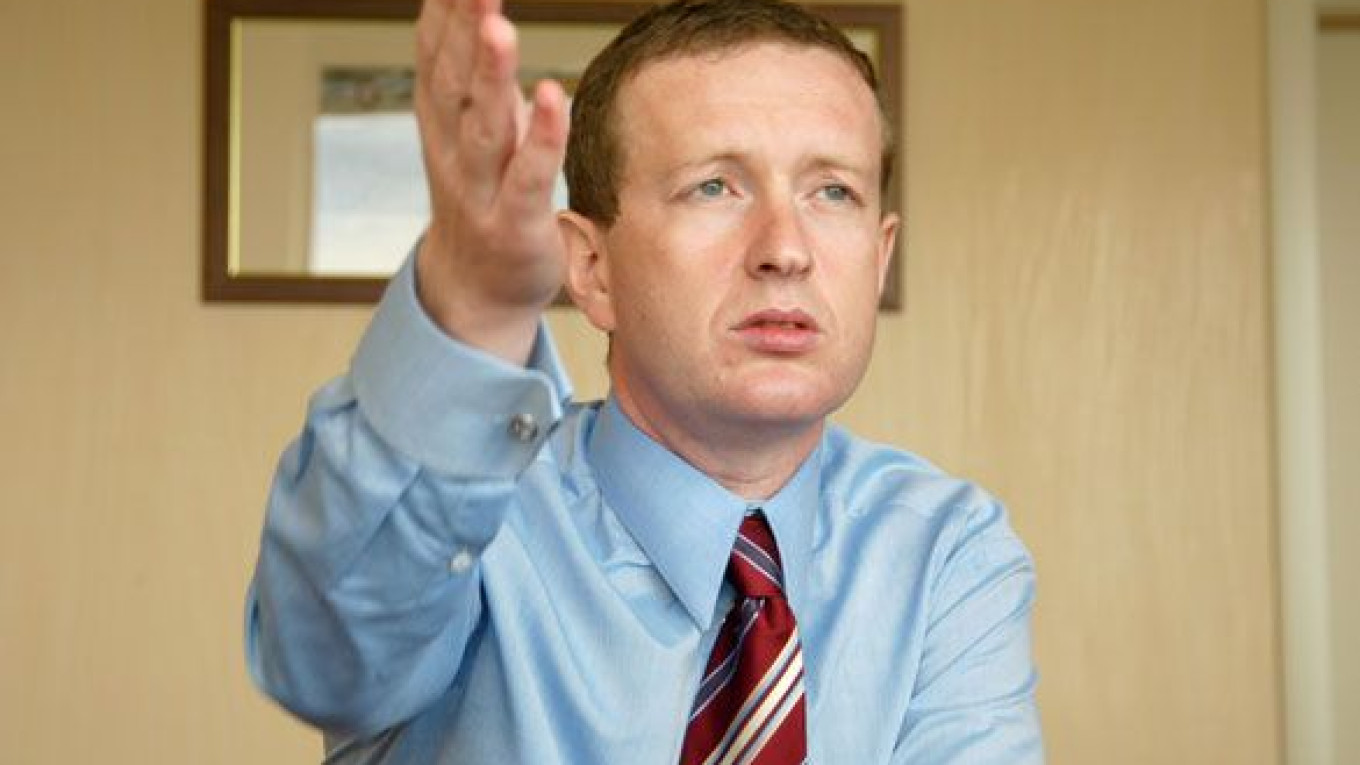Banker Igor Linshits, who has been living in self-exile since 2006, is free to return to Russia because recent changes in the Criminal Code have led to the criminal case against him being dropped, Linshits’ lawyer said Monday.
Linshits’ prospective return comes after Mikhail Gutseriyev, founder of the Russneft oil company, came back to Russia for the first time in more than two years after similar charges were dropped against him.
The case against Linshits, who was accused of illegal banking activities and money laundering, was closed on April 29 after the Prosecutor General’s Office determined that no criminal law had been broken.
“The actions attributed to Linshits as ‘illegal banking activity’ are no longer considered criminal because of changes in the law. An earlier version of Article 172 [of the Criminal Code] contained ambiguous wording that was not consistent with banking laws,” said Alexander Asnis, Linshits’ lawyer. Amendments to the law were passed earlier this year, and it is now free of ambiguous wording, he said.
Linshits currently lives in Britain, and there are no longer any formal barriers to his return to Russia, Asnis said.
But unlike Gutseriyev, who regained ownership of Russneft in January, it is unclear that Linshits has any business to return to.
Linshits’ Neftyanoi Bank was dissolved in summer 2009, and his development company was seized and sold off during the investigation. Asnis wouldn’t say whether Linshits still has any business in Russia or whether he planned to return.
Linshits’ problems began in 2005 after it became clear that he was supporting liberal political parties and harbored political ambitions of his own. His Neftyanoi Bank, which was Russia’s 76th largest in 2006, reportedly supported the Union of Right Forces, a democratic opposition party pushing free market reforms. Boris Nemtsov, then leader of the opposition party, served as a director of Neftyanoi after losing in the 2003 State Duma elections.
Linshits himself ran unsuccessfully for a Duma seat on the Communist Party ticket in 2003.
Nemtsov said in a 2006 interview that Linshits' prosecution began after a false tip-off to the government that Linshits was financing former Prime Minister Mikhail Kasyanov's presidential campaign in 2004.
In November 2005, investigators raided Neftyanoi Bank, and special forces seized documents that they said showed that the bank was involved in illegal activities. In January 2006, Linshits was put on a federal wanted list, and in March of that year six of the bank's executives were arrested.
Before the arrests were made, Linshits fled to Israel, where he received Israeli citizenship in 2008.
Neftyanoi Bank eventually closed down and its license was revoked because of the ongoing criminal investigation.
Linshits' other major asset, an 85.89 percent stake in Mosinzhstroi Development Company, was seized in March 2007, along with his home in the Moscow region.
In 2009, the stake was acquired by Roman Abramovich's Infrastruktura company for $150 million while still being held by the authorities, Vedomosti wrote at the time. Late last year, Mosinzhstroi's CEO and six deputies resigned from their posts.
The previous version of Article 172 of the Criminal Code prohibited a "breach of licensing requirements and conditions," an ambiguous formulation that gave investigators a wide degree of latitude in deciding whom they would prosecute and for what reasons.
Such a formulation gave investigators the right to criminally charge businessmen for "having a fire extinguisher in the wrong corner," said Yana Yakovleva, head of the entrepreneurial rights group Business Solidarity. Using the charge of illegal banking to imprison people gained in popularity after 2005, but its use was never widespread, she added.
While prosecutors never revealed the specific infractions the bank was charged with, investigators said Linshits and the other bank executives had made 57 billion rubles ($1.9 billion) in illegal transactions and had laundered 610 million rubles.
The others charged with illegal banking activity in the Neftyanoi case have been released from jail either on parole or after serving their full sentences, said Boris Kozhemyakin, who represented deputy chief executive Andrei Salimov. Salimov was sentenced to five years in prison by Moscow's Tagansky District Court in November 2008. He was released late last year after serving 3 1/2 years behind bars.
People in jail on charges that are no longer applicable under new legislation can petition to be released in court when their sentence is being extended or at parole hearings.
A Message from The Moscow Times:
Dear readers,
We are facing unprecedented challenges. Russia's Prosecutor General's Office has designated The Moscow Times as an "undesirable" organization, criminalizing our work and putting our staff at risk of prosecution. This follows our earlier unjust labeling as a "foreign agent."
These actions are direct attempts to silence independent journalism in Russia. The authorities claim our work "discredits the decisions of the Russian leadership." We see things differently: we strive to provide accurate, unbiased reporting on Russia.
We, the journalists of The Moscow Times, refuse to be silenced. But to continue our work, we need your help.
Your support, no matter how small, makes a world of difference. If you can, please support us monthly starting from just $2. It's quick to set up, and every contribution makes a significant impact.
By supporting The Moscow Times, you're defending open, independent journalism in the face of repression. Thank you for standing with us.
Remind me later.


